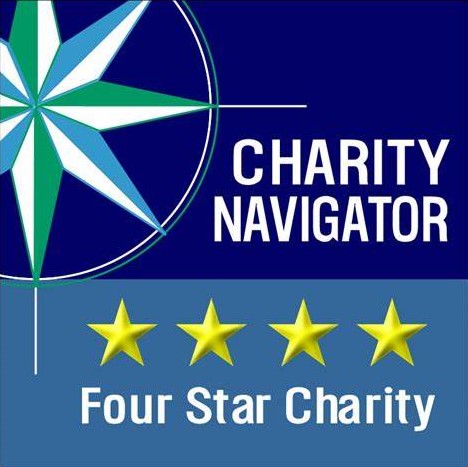Chez Ray Sewell does not let a thing like dialysis slow him down. This Renaissance man has his fingers pressed firmly on the pulse of life and dedicates his time to communities far and wide.
Since being diagnosed with end-stage renal disease (ESRD) three years ago, Chez Ray continues to draw upon the people around him for encouragement and inspiration. Feeling exhausted and bloated for a while, Chez Ray was in the midst of filming a television pilot for a cooking show in the Sierra Mountains when he blacked out for the second time in two days due to a potassium overdose. With community support, he got to the hospital where he discovered his kidneys were not functioning properly.
Along his road to discovery and prior to his diagnosis, Chez Ray was raised in San Francisco and was frequently involved with food preparation and presentation, spurred by his involvement in food sciences courses in school. As a teenager, he developed lasting friendships with Haight- Ashbury musicians who later became known as the Grateful Dead as well as novelist Ken Kesey and the eclectic Merry Pranksters. Little did Chez Ray know, his relationship with these entertainers would blossom into something very significant and still impact him today as he combats his kidney disease.
Chez Ray trained in classic French cuisine, had apprenticeships in his hometown and ran several three-star kitchens, including his own Italian restaurant called La Primavera in Eugene, OR. Chez Ray’s career as a professional chef has spanned 30 years, 25 of which involved being the chef for the Grateful Dead. He also was a fixture backstage at the notable San Francisco rock-and-roll scene for decades. Chez Ray’s connection to all of these colorful characters led to friendships with more icons of the ‘60s and ‘70s, including the famous Flying Karamazov Brothers juggling and comedy group. As an upshot of this association, a volunteer-driven traveling road show called New Old Time Chautauqua soon was formed. For more than 25 years, the nonprofit vaudeville troupe has emphasized education through entertainment as a way to reach audiences. Chautauqua’s assembly of musicians and performers journey to underserved areas in an effort to amuse spectators and teach them about everything from clowning, quilting and juggling to AIDS education and smoking-cessation.
“I’m dedicating my time to where I can be most effective — in my personal life and in the community,” said Chez Ray. “Once I understood what I was dealing with by being on dialysis, I immediately thought of a way to put that time to work. I began to write my cookbook/storybook, which is largely a biography of my life as well as about cooking and entertaining. Having previously been so consumed by my restaurant and working on concerts, this redirected energy and mandated focus was a welcomed opportunity.”
“I’ve been part of strong communities throughout my life, which has been extremely helpful to me,” said Chez Ray. “I realize I’m now part of a broader dialysis community and look for ways I can bring the dialysis population together.”
Chez Ray was so moved by the aftereffects of Hurricane Katrina that he and about 50 other Chautauqua members teamed with Frensenius Medical Care North America to present a free special showing of the Jambalaya Vaudeville Tour specifically for dialysis patients, caregivers and their families in New Orleans in April 2006.
“Katrina brought everyone together. The dialysis patients’ stories and heroic acts of the clinics’ staffs were very inspiring,” said Chez Ray. “This is a community of survivors and heroes within a community of survivors and heroes from the hurricane.”
In addition to performing in New Orleans, Chautauqua members visited several of the hardest hit cities in Mississippi to reach out to hurricane survivors, relief workers, construction crews, fire personnel, police and others.
“I travel around the country with vaudeville troops where we do big shows in small communities, which means I’ve also spent time at a variety of dialysis clinics,” said Chez Ray, who now lives in Petaluma, CA. “Many of them are small like the communities they’re in. As a result, they are far more relaxed and much more personal. But wherever I go, I feel like I’m very much a part of a dialysis community.”
Now on the kidney transplant waiting list, Chez Ray relies on Fresenius Medical Care’s vast network of dialysis clinics for his needs as he travels approximately 40 days a year. In addition to organizing tour dates for Chautauqua, Chez Ray cooks backstage for hundreds of people during various concerts. He pointed out one of the major adjustments of dialysis, though, is the time dedicated to cleaning his blood during his three treatments a week. Still, he credits his doctors and the staff at the Fresenius Medical Care Petaluma clinic he goes to for his great care. Today, Chez Ray feels healthier now than he did in the past.
“My motivation comes from my internal belief that when confronted with a situation where you have little control, the greater motivator is not to resist, but instead to look closer and discover how you might best serve the situation,” said Chez Ray.
He also believes greater emphasis should be put on bringing together dialysis patients.
“Healthcare is greatly improved by focusing on the human equation of the group of people, since a community is like a living organism itself,” said Chez Ray. “I think our community would benefit from learning about kidney disease and dialysis not just from pamphlets and doctors, but through education and entertainment. It’s a way to humanize this disease so you might better understand the survival techniques. There’s less fear and a greater exchange of information which includes the introduction of humor into communal situations.”
As for his future, Chez Ray is actively meeting with two media outlets regarding a traveling television show basedon the Grand Feast, which he calls the genesis of celebration and theater.
“It will be a marvelous thing to manifest if I can get the show on TV; being a public figure on dialysis sends a terrific message and could help raise awareness of the disease,” said Chez Ray. “Being on dialysis doesn’t mean life is over.”
As his connection to Fresenius Medical Care grows, so do his ideas for continually reaching different audiences. His brainstorm called “Circus for Sick People” would involve doing shows for communities with common threads, such as dialysis or cancer as well as other illnesses and diseases, alleviating the shame or embarrassment associated with their medical conditions. He compared the concept to a Grateful Dead show where attendees are fully absorbed in the show’s entertainment without judgment. Wherever he finds himself, Chez Ray maintains his positive attitude and offers advice to those who are afflicted with kidney and other compromised health ailments.
“Sustain who you are as long as you possibly can; you might just have to try a little harder. If you want to live, you have to go out and get it,” said Chez Ray.
You can email Chez Ray Sewell at [email protected].































